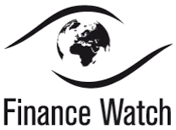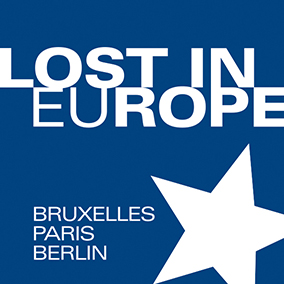The Honey Trap
EU Latin America Trade Agreements
Europe has set out a new trade deal for Latin America, honey-coated and wrapped in a bow. But is it a honey trap? Do the leaders of Latin American really know who they're getting involved with? And if they do know; do they care?
Critics of the agreements say a 'Yes' vote means the destruction of Latin America's delicate natural resources. Vote 'Yes' they say, and Parliament is complicit in the exploitation of human labour, the destruction of land for cheap energy, and the erosion of fragile human rights. Parliament is being asked to gamble that more free trade, does not mean less quality of life.
In a turbulent economic sphere, the flux of trade metrics means a billion dollars on the table today, might look the real deal; but money has a strange way of self-combusting, just ask a Greek, or a Spaniard. Offering Latin America an idyllic opportunity to trade more profitably with Europe sure looks pretty,
Get up close and the picture's different. For every euro Latin America receives for palm oil or sugar cane, there is a hidden cost. Increase palm oil production and more and more hectares of land will be cleared to grow oil palm trees.
To grow sugar cane in the vast quantities Europe will consume, land ownership will change. For many Latin American countries that means the big guys often just take land from the little guys, frequently without compensation. Justice is slow and often encouraged to be blind. If a finite and diminishing water supply is used primarily to grow crops, the poorest communities will be priced out of the water market. And much like the land grabs in Latin America, oppose the corporation when he wants your water, and you might be swimming with the fishes. Europe is not just buying goods, it's buying into values. It may also be buying into conflict.
In 2011, U.S. Secretary of State Hillary Clinton published a declassified report on Global Water Security. Compiled by the office of the Director of National Intelligence with contributions from eight intelligence organizations, including the CIA, the report comforts the world with the cosy insight that although "water-related state conflict" is unlikely in the next 10 years, it predicts a number of states "will exert leverage over their neighbours." As water shortages intensify, water in shared basins will become a highly sought commodity, and could be used, according to the CIA, "as a weapon, or to further terrorist objectives."
Over-pumping groundwater to meet expanding food demands during the next decade, will lead to groundwater depletion in some agricultural areas. Poor water management will pose a risk to domestic and global food markets,
And then, there's the energy issue. More than 15 developing countries generate 80% of their electricity from hydropower - water shortages are already affecting power generation.
At present, the EU has a 50% dependence on imported raw materials for its energy needs, a figure that could reach 65% by 2030. As the need for renewable energy sources increases, so too will the agricultural demand on the lands of Latin America. More deforestation, plus less water supply, is an easy climatic equation to calculate, but the figures, and the outcome, are profoundly negative.
Trade between the EU and Central America is barely 0.5% of the EU's international trade. Figures which led some diplomats to declare, in less than diplomatic terms, that these trade agreements are a matter of European altruism. While some argue that the agreements are altruistic, others claim the EU-Latin American trade deals are set in favour of multi-national corporations. On the side of growth, business lobby groups argue that liberalised markets mean higher standards; improved productivity; more innovation, better human rights, less corruption.
On the civil society side of the tracks, lobbyists argue that these trade deals will undermine Latin America's limited tax revenues and reduce wages, while increasing prices and stretching an already tense inequality gap.
And then there's problem with the guy next door; there's no fence to keep him out. Europe is faced with some unruly global neighbours. So, what happens if Parliament rejects the trade agreements because, the risk of inequality is too high, or the profit too low? Will the guy next door walk on by? Not a chance.
For every high ideal Europe might hold claim to, there's a cartel, a quasi-dictatorship, or a Russian president doing the figures on the futures markets. In the handbook of global profiteers, there isn't a section on human rights, or sustainability, or environmental protection.
So, Europe's got a choice. Parliament's got a responsibility. In a stable democracy, the deal is not done on the dotted line; it's done in the months and years after its signed. For all the monitoring criteria and human rights penalties glaringly absent from these trade agreements, there is also a fencemaking kit, a set of guidelines which can mark out political and economic territory. The risk is, Parliament flags the agreements as
"Sold", a done deal. Instead, Parliament should put a sign on the front lawn, the sign should say 'Under Construction'.
Europe can't bury its head in sand, it has to take ownership of its trade values, not to discount them to make a quick buck. It has to build the fence, keep the unruly neighbours out; then make the garden grow.
Parliament will almost certainly vote 'Yes' to the agreements. Then, it has to get back to work. It's responsible for a new deal. Today, Europe is mortgaging the future of Latin America at a discount rate; tomorrow it will have to live in the house it built. A house without water, hiding a war-torn back yard, and constantly under pressure from unruly neighbours - that's subprime. We've all had enough of that.
Download-Dokumente:
- The Honey Trap European Business Express




